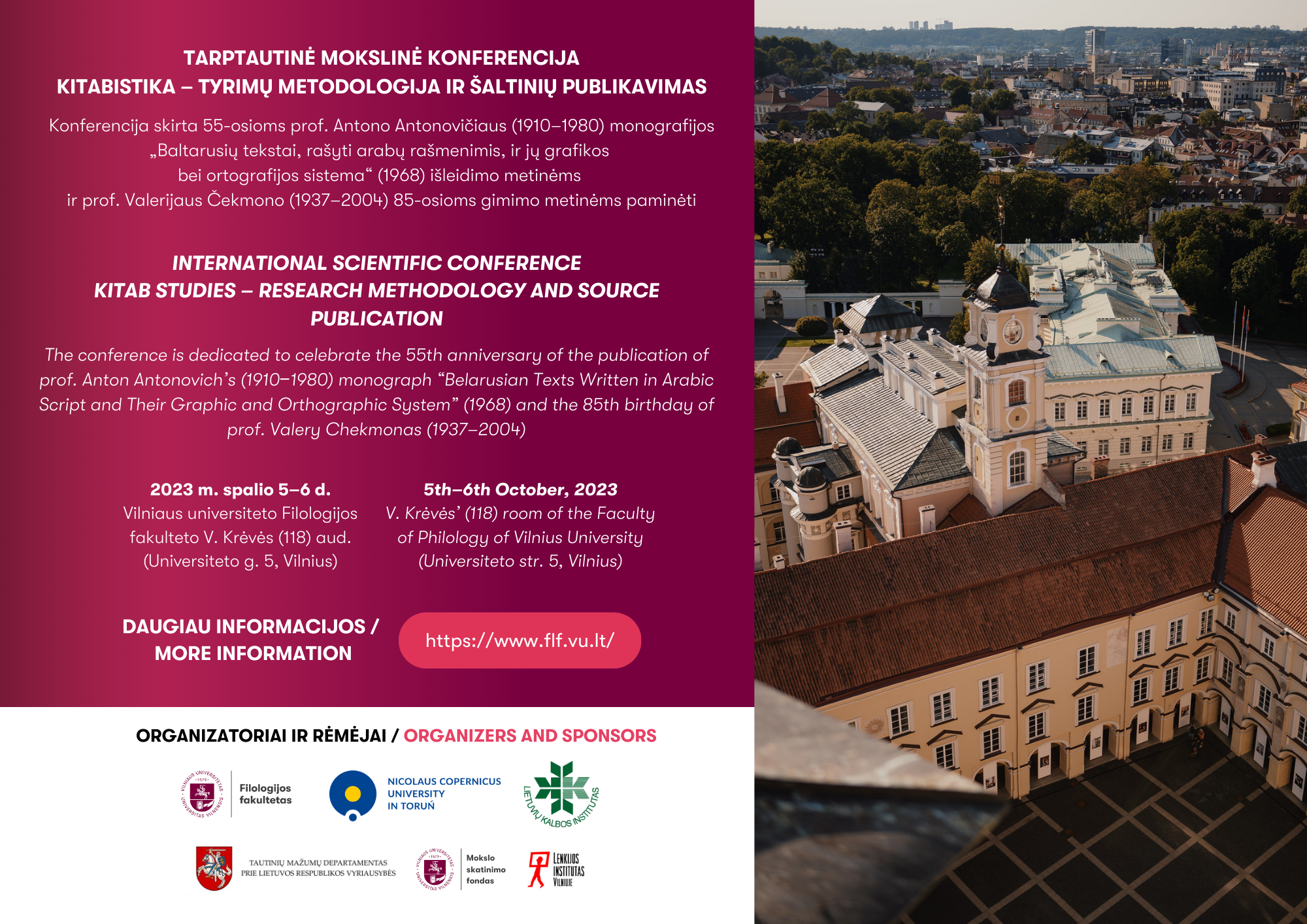International scientific conference 'Kitab Studies – Research Methodology and Source Publication'
29 September 2023
On October 5–6, 2023 in the Faculty of Philology of Vilnius University (Universiteto St. 5, Vilnius) the international scientific conference Kitab Studies – Research Methodology and Source Publication will be held.
The conference is dedicated to celebrate the 55th anniversary of the publication of Anton Antonovichʼs (1910‒1980) monograph “Belarusian Texts written in Arabic Script and Their Graphic and Orthographic System” (1968) and the 85th birthday of Valery Chekmonas (1937–2004).
The purpose of the conference is to unite the scientists in dialogue and discussion to continue and develop the research of eminent professors A. Antonovich and V. Chekmonas, to discuss the written heritage of the Grand Duchy of Lithuania, the issues of the history and culture of Tatars and Old Believers in Lithuania and other countries and the problems of research in the field of Baltic and Slavic sociolinguistics, ethnolinguistics and language contacts.
The two-day conference will bring together 37 scientists from Lithuania, Poland, Estonia, Ukraine, Turkey and other countries.
The conference is organized by the Institute for the Languages and Cultures of the Baltic of the Faculty of Philology of Vilnius University, the Centre for Kitab Studies at the Nicolaus Copernicus University and the Institute of the Lithuanian Language.
On the eve of the conference on 4 October at 5 p.m. the exhibition “Teachers’ Way: Research on Culture of Lithuanian Nations” will be opened in the White Hall of Vilnius University (Universiteto St. 3, 4th floor). The exhibition will be opened for visitors until 1 November.

